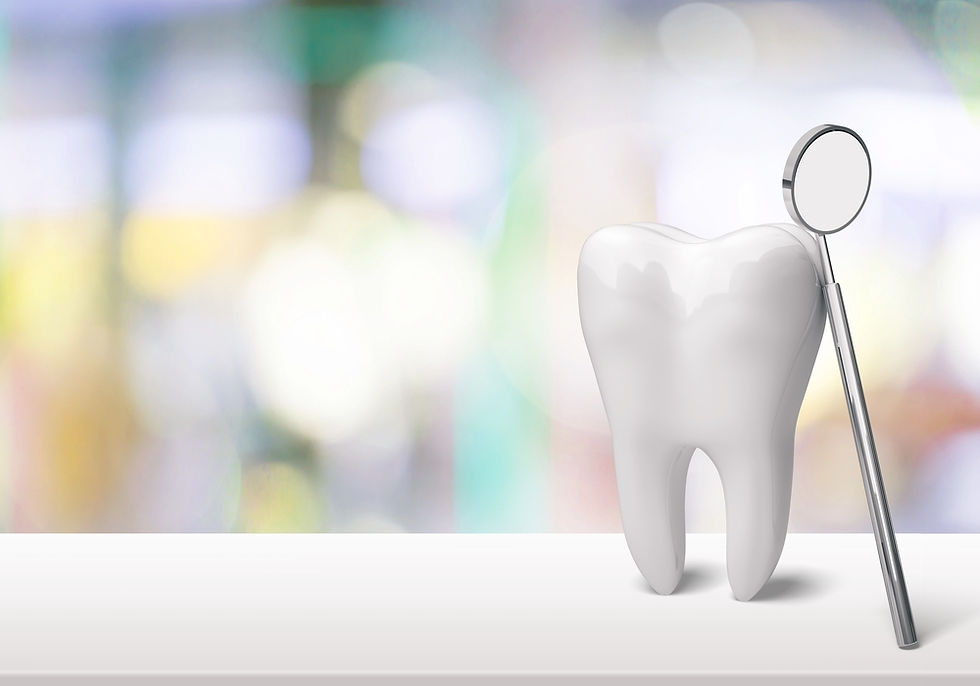How Often Should You Really Visit the Dentist
- ameliya lanne
- May 29
- 3 min read
The dentist's office might not be your favourite place to visit, but are you devoting enough time to your oral health? Many of us subscribe to the twice-a-year check-up routine, but is that really the golden standard? Or perhaps, is it too much or too little? If you find yourself navigating the murky waters of dental frequencies, you've come to the right place. In today's post, we're gleaning insights from professionals, and cutting through the noise to present actionable advice on how often you should be visiting your dentist.
It’s worth remembering, even for those absent-minded teeth neglecters amongst us, that your dental health not only impacts your smile but also has significant bearings on your overall well-being. Delaying that dental check-up can be more detrimental than you think, but here's where we hope to make a difference for you, our cherished reader. The goal of this post is to provide you with a clear roadmap, grounded in scientific evidence and expert opinions, to help you align your dental visits with your unique needs.
Let’s unravel the mystery, shall we? Follow us down the rabbit hole as we reveal the intimate connection between your oral hygiene and overall health, delve into influence factors, and chip away at the misconceptions surrounding dental visits. By the end, we’ll give you a well-delineated guide towards personalizing your dental visit regime.

Understanding Dental Visits and Oral Hygiene
First things first. A dental visit ideally is not just about shooing away lurking cavities. It's a comprehensive examination of your oral health, often encompassing plaque removal, professional cleaning, and checks for potential problem areas. Over time, even your best efforts at home can’t beat the persistent buildup of plaque and tartar. Routine professional cleanings bridge the gap, nudging you a step closer to excellent oral hygiene.
Moreover, your mouth is the gateway to your body. Neglecting the oral health can usher you into the unnerving realm of coronary heart disease, dementia, and diabetes. Regular visits to your dentist can therefore, act as the sentinel on guard, alerting you to the red flags long before these health conditions unfold in their full might.
Lastly, it's imperative to bear in mind that your dentist visit isn't merely a transaction; it's a relationship of trust and openness. Make sure to talk about your fears and apprehensions to alleviate the stress associated with dentist visits.
Spotting Signs That Call for More Frequent Visits
Are you someone who brushes twice daily, flosses, and watches your diet? Good on you! Even so, various factors can propel you into the high-risk bracket. Circumstances such as a history of gum disease, regular smoker, having diabetes, being pregnant or an inherent predisposition for cavities all warrant more repeated appointments. It’s crucial to continue the dialogue with your dentist about these factors.
Dental Frequency – Unravelling the Twice-a-Year Rule
The rule of thumb, the twice-a-year frequency, it turns out, isn't one size fit all advice. Many dentists concur that the frequency relies heavily on individual dynamics such as your oral hygiene habits, lifestyle and overall health.
Children, Adults, and Seniors – A Comparative Analysis
Different life stages call for dissimilar dental needs, translating into varying dental visit frequencies. Children, for instance, need a more proactive dental routine, while adults without significant risk factors can afford to be a bit more relaxed.

The Financial Implication of Dental Visits
Finances can be a significant deterrent to regular dental visits. But, shying away from your dental visits due to costs can result in you paying hefty bills in the long run. Preventive care is palpably cheaper than treating progressed diseases.
The Power of Proactive versus Reactive Approach
When it comes to dental health, a proactive approach is paramount. Early detection and preventive care can nip many issues in the bud. Reactive treatment, often costlier, comes into play when preventive measures are absent or inadequate.
Conclusion
In conclusion, the prime takeaway is that dental visits should not be treated as a one-size-fits-all proposition. Consult with your dentist to tailor an appropriate schedule, taking into account your oral hygiene practices, lifestyle, risk factors and overall health.
Vigilance and regular check-ups can help you win half the battle towards achieving and maintaining good oral health. So, forget adhering to a blanket rule and start personalizing your dental visit regime today. After all, a healthy smile is a priceless asset, and it's time to invest wisely in it!




Comments